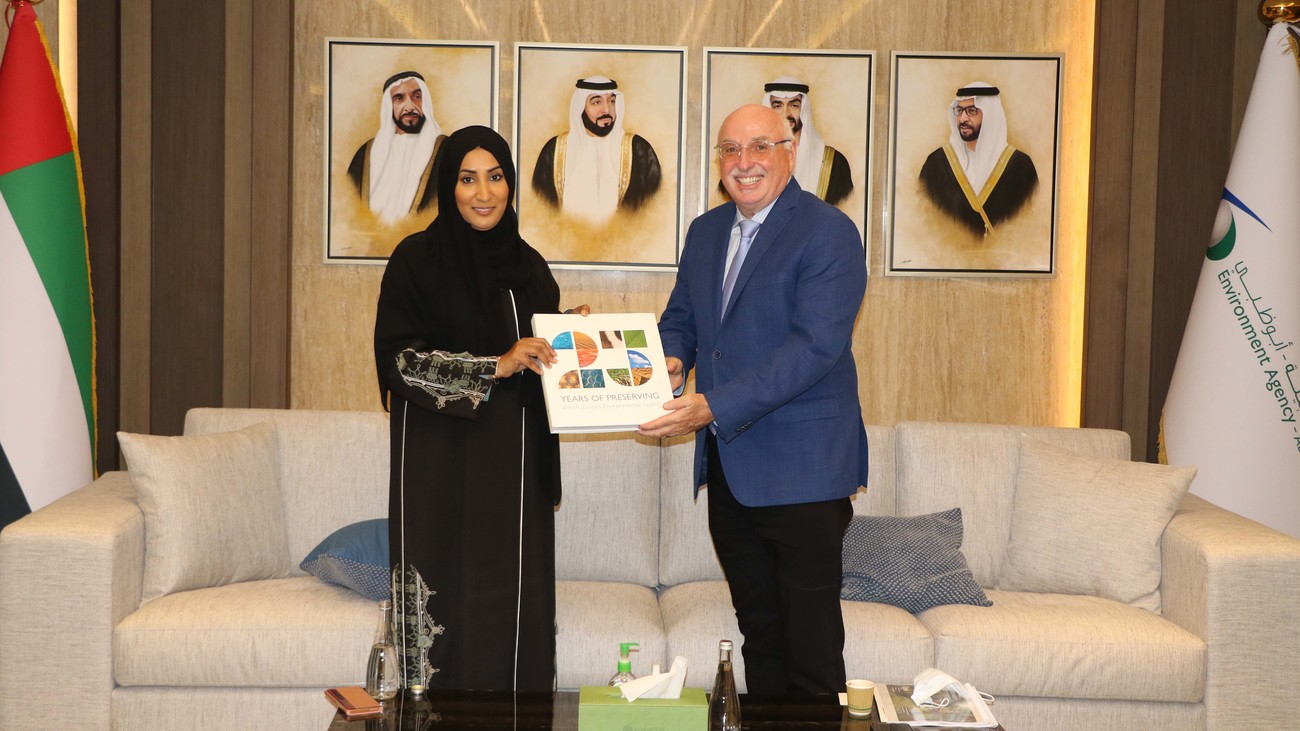changing the face of conservation: women and local communities are taking the lead
changing the face of conservation: women and local communities are taking the lead

The gender-gap conversation has gained attention for decades across the world, and though we have come a long way, there is still a lot that needs to change.
“During one of my trips to Kenya, I randomly asked a woman from the local community, ‘What does it mean to you personally to have a voice in the work we do?’ and she responded, ‘It’s like living in the shadow of the tree and finally being able to step out.' " Azzedine Downes, President and CEO of the International Fund for Animal Welfare (IFAW), shared this story with Dr. Shaikha Salem Al Dhaheri, Secretary General of the Environment Agency - Abu Dhabi (EAD) during his visit to Abu Dhabi this week.
Dr. Dhaheri is a Global Councilor for International Union for the Conservation of Nature (IUCN) for which she was re-elected for another four-year term in the elections held last month during the World Conservation Congress in Marseille, France. She was the only women candidate from the West Asia Region. Dr. Al Dhaheri also has a distinction of being the first Emirati woman to receive a PhD degree in Wildlife Conservation from the University of Aberdeen in the United Kingdom.
Dr. Dhaheri, maintains a fine balance between modern values and practices and Emirati traditions. As the head of the Environment Agency, she is tasked with protecting the environment and work with other sectors to ensure environmentally sustainable development in the Emirate. She strongly believes that women and local communities play an important role in conservation and that it is difficult to visualize conservation without them. Participatory conservation approach is gaining currency around the globe. Dr. Dhaeri explains, “It doesn’t necessarily mean joining the workforce, there are many other ways one can contribute towards conservation."
"We really benefitted from the local communities as we tried to understand and manage complex issues such as overexploited fisheries and overgrazing by camels. We were amazed to find that the knowledge women and the local communities shared was very close to what we found from our research. They may not have acquired this in schools, but nature was their classroom and it’s a part of who they are. We need women, not just for the gender equity but also for the different perspective they bring to any issue.”
Working with women in Kenya
IFAW also strongly believes in the importance of involving women and local communities in conservation. In Kenya, Maasai women are deeply connected to their communities and land, making them key proponents to local conservation efforts. They have insider knowledge and unique perspectives to offer male ranger units, but until recent times they lacked the opportunities to get involved on a professional level. Then in 2019, IFAW’s tenBoma wildlife security team created Team Lioness, one of the first all-women ranger units in Kenya. The ranger team has become a force to safeguard wildlife, all while breaking gender stereotypes and uplifting women.
According to the World Economic forum, approximately one third of land and sea areas, which have been identified as crucial for biodiversity, are yet to be protected. Hence, drawing our attention to the human activities taking place outside of these protected areas is imperative in the protection of the endangered species. Working with local communities is critical. As Azzedine adds, “If we don’t rely on local communities, there will be so many losses."
Related content
Every problem has a solution, every solution needs support.
The problems we face are urgent, complicated, and resistant to change. Real solutions demand creativity, hard work, and involvement from people like you.